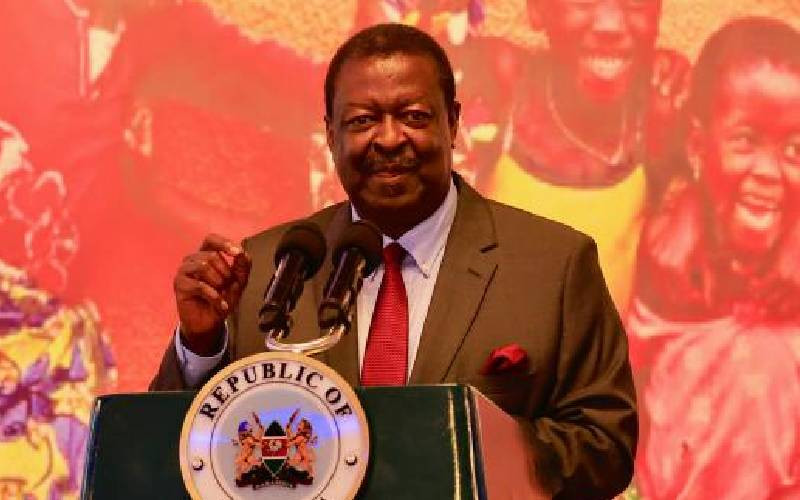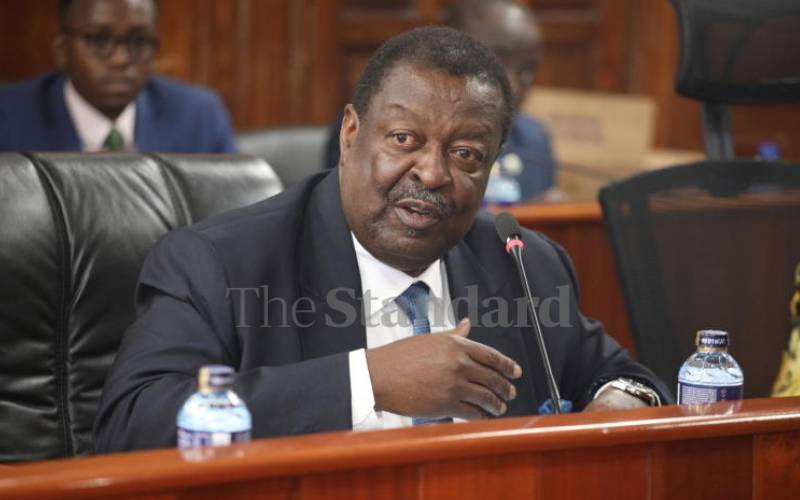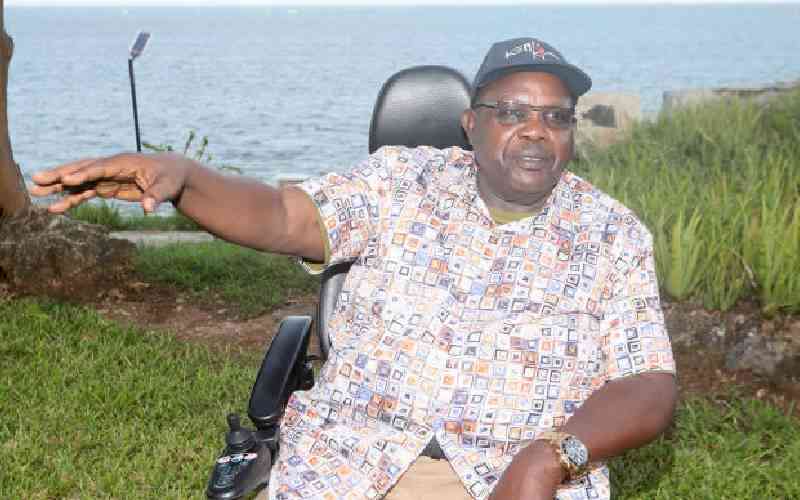 |
|
A view of Nairobi city hall. [PHOTO: JENIPHERV WACHIE/NAIROBI] |
By Protus Onyango
NAIROBI; KENYA: The city fathers seem to have found a perfect send-off gift for themselves and their contractors.
It is emerging that in the last minutes of the current council’s five-year tenure that the civic leaders have secured Sh300 million loan.
Shortly before quitting his post, outgoing mayor George Aladwa revealed to The County Weekly details of the loan.
Mr Aladwa quit as mayor last Friday and will quit as ODM branch chairman on January 15.
He explained that the local authority’s management has authorised the council to get a loan of Sh300 million from Equity bank to pay contractors, suppliers and business partners.
“We want to pay our contractors before we leave so that we settle all debts,” said Mr Aladwa, who resigned to vie for the Makadara parliamentary seat.
Above board
When questioned why the council was still borrowing money after the controversial Sh5 billion loan the council got from the bank, the outgoing mayor said the action is above board.
“We have a good working relationship with Equity Bank. In fact, the bank gave us money to pay the December 2012 salaries to our employees,” Mr Aladwa said.
Town Clerk Tom Odongo explained that the council took the Sh5 billion loan because it was faced with financial challenges and failure by the council to clear its outstanding statutory payments to satisfy Local Authority Transfer Fund(LATF) conditions.
He said the council was required to clear all outstanding debts by 30th June 2010 in order to access LATF funds.
Wrong hands
“It is important to note that the statutory debts the Council owed to LAPTRUST, LAPFUND, NSSF and NHIF were attracting punitive penalties of up to 36 per cent interest of the principal amount. With strained cash flow and high recurrent expenditure, we took the loan to help clear off the statutory debts and yet offer lower repayable rates than the existing 36 per cent,” Mr Odongo said.
He said Equity bank offered the best offer of 10 per cent compared to other banks, which offered the loan at 12 per cent at the time.
Stay informed. Subscribe to our newsletter
“But the Sh5 billion loan was not enough to clear all the outstanding statutory debts and penalties due to the high interests charged by the said bodies. We appreciate the help that Equity Bank offered us during our hour of need, enabling us to pay salaries to our employees and meet other service delivery obligations,” Mr Odongo said.
But observers say the money is likely to end up in the wrong hands and force ratepayers to shoulder the burden of repaying the loan.
“Our financial woes are as a result of unpaid money the council is owed by its debtors and a huge loan the council is servicing with Equity Bank. This explains why the council is unable to provide most of its services,” said Benson Olianga, the Nairobi Branch Local Government Workers Union Secretary General.
Corruption
Mr Olianga blamed corruption for the misuse of the council’s funds.
“A lot of money is paid to the council but it ends up in people’s pockets. For example, the Government pays Sh120, 000 per year per one parking lot but it ends up in some people’s pockets.”
Mr Julius Otieno who lives in Ruaraka supported Mr Olianga’s sentiments.
“It is common knowledge that many councillors have set up companies that do business with the council. This money will end up in their pockets,” said Mr Otieno.
But Mr Aladwa defended his tenure, saying more has been achieved for the two years he has been at the helm of the council’s leadership.
The mayor also clarified that the Sh300 million loan was supposed to be repaid in one year’s time at an interest rate of 20 per cent.
This means that the new Nairobi governor will be expected to pay Sh60 million to Equity Bank as interest.
“We have achieved unity and peace. The councillors no longer fight in the Chamber, we have paid salaries on schedule and built roads,” Mr Aladwa said.
He however declined to reveal the identity of the contractors, the services they had offered to the local authority or the amount each was owed.
He added: “We have done projects in all wards using LATF funds and paid bursaries to learners in council schools which perform better despite competition from private schools. We have built markets and introduced modern kiosks.”
Mr Aladwa said that it is during his reign that now the city askaris treat residents with respect and decorum.
Technically insolvent
“We have cleared hawkers from the city streets. Those ones in the streets now are not hawkers but political pawns,” he said.
Despite Mr Aladwa’s rosy picture of his council, City Hall is still in financial woes.
The council has been technically insolvent, failing to meet its obligations.
In July last year, workers joined the management and other staff members and literally walked to their debtors to ask for their money.
Then, that month’s workers’ salary, their medical scheme provided by Forbes Alexander had been withdrawn and other employee benefits put on hold.
This forced Roba Duba, the then Town Clerk to lead other workers to seize the Kenyatta International Conference Centre (KICC) parking lot over a Sh26 million debt, causing a confrontation between his group and guards hired by KICC management.
Mr Duba at that time said the council was owed Sh109 billion by public and private organisations and individuals and warned defaulters that they pay up or face the council’s wrath.
The defaulters were the Department of Defence (Sh61 billion), Kenya Power (Sh257 million), Parliament (Sh500 million), government parking bays (Sh500 million) and the Central Bank of Kenya (Sh500 million), among other debtors.
In October last year, the Kenya Revenue Authority (KRA) froze the council’s accounts over non-payment of tax arrears amounting to Sh200 million.
Rushed to pay
In August last year, the council collected Sh2 billion from property owners who rushed to pay land rates when the council threatened to auction their properties.
Sources told the County Weekly that the council collects a total of Sh8 billion annually, Sh6 billion for the services it offers and Sh2 billion from LATF.
The council’s annual budget is Sh15 billion and most of the money is used to pay the over 11, 000 workers.
The council is supposed to provide free healthcare, nursery and primary education, fire brigade services, garbage collection, clean water supply, free rehabilitation of street families, street lighting and care of the elderly.
Other free services include recreational facilities and subsidised rental houses.
 The Standard Group Plc is a
multi-media organization with investments in media platforms spanning newspaper
print operations, television, radio broadcasting, digital and online services. The
Standard Group is recognized as a leading multi-media house in Kenya with a key
influence in matters of national and international interest.
The Standard Group Plc is a
multi-media organization with investments in media platforms spanning newspaper
print operations, television, radio broadcasting, digital and online services. The
Standard Group is recognized as a leading multi-media house in Kenya with a key
influence in matters of national and international interest.
 The Standard Group Plc is a
multi-media organization with investments in media platforms spanning newspaper
print operations, television, radio broadcasting, digital and online services. The
Standard Group is recognized as a leading multi-media house in Kenya with a key
influence in matters of national and international interest.
The Standard Group Plc is a
multi-media organization with investments in media platforms spanning newspaper
print operations, television, radio broadcasting, digital and online services. The
Standard Group is recognized as a leading multi-media house in Kenya with a key
influence in matters of national and international interest.










